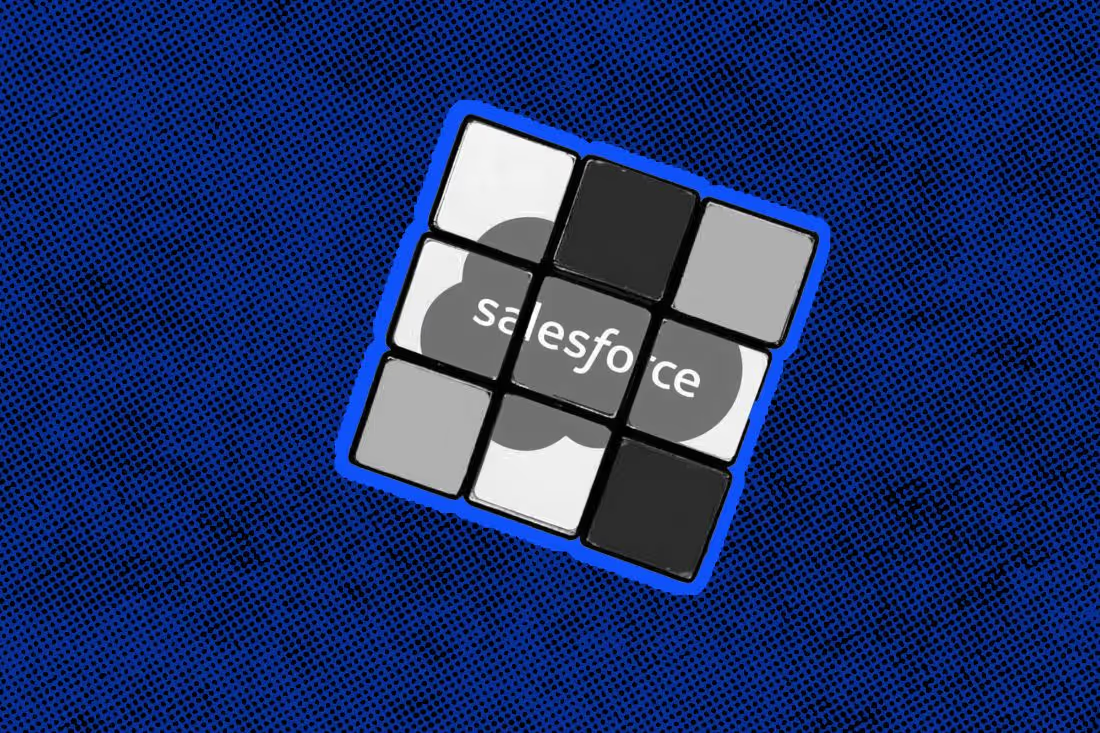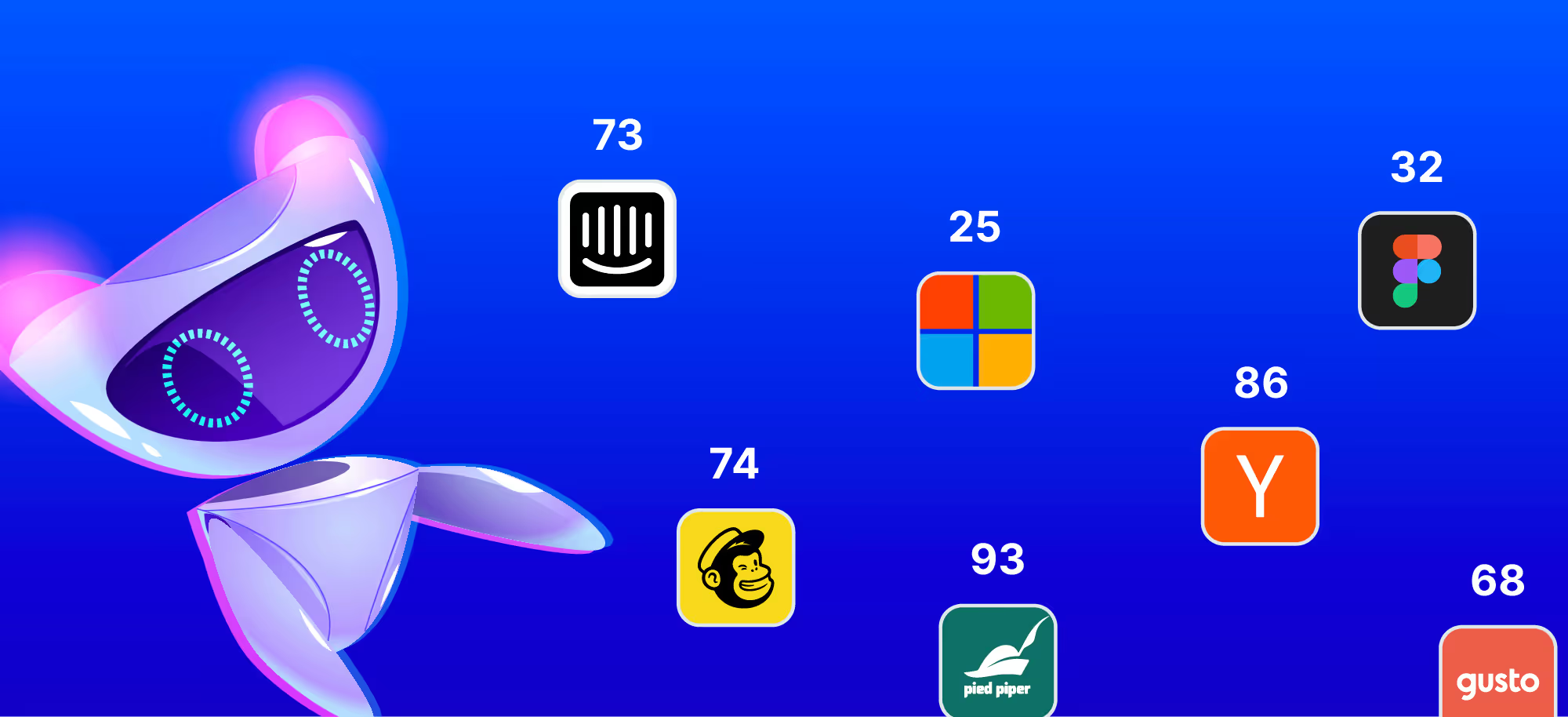15 Salesforce Alternatives That Make Sales Easy


Are you using Salesforce but hate it? Believe me, I know the feeling. Just like you, I’ve worked for companies that were tricked into believing Salesforce was the best because they’re the “market leader” and what a regrettable decision Salesforce was. It’s clunky, practically impossible to set up, and onboarding users can take months.
Salesforce has such a bad user experience that it’s actually a common meme within the sales community. Here are a couple of my favorites:


So are there CRMs out there that are better and, more importantly, easier to use? In short, yes! There are actually tons of CRMs and the vast majority of them have made some level of improvement over the dinosaur that is Salesforce.
Below, we’ll be listing out some of the best Salesforce alternatives of 2021 and if you were to migrate to any of them, you’d find that both your life and sales process would be improved overnight. Let's dive in!
1) LeadLoft

LeadLoft was literally purpose-built for ease of use. After 10-15 minutes of onboarding, you’ll be ready to get started and just another 15 minutes is needed to get comfortable navigating all of LeadLoft’s features.
Quick onboarding isn’t the only amazing aspect of LeadLoft however. LeadLoft comes pre-packed with lead generation and prospecting tools that are simple and intuitive, yet powerful enough to be the only prospecting tools you’ll need. It costs a little more than most CRMs on this list, but it can replace your prospecting software, sales engagement software, and your CRM. In the end you’ll likely save hundreds of dollars per user every month and will never have to worry about complex integrations.
- Get Started: Sign Up Here
- Price: $100/user/month
- Best for: Small & Mid-Size Businesses
2) Pipedrive

Pipedrive’s simple and easy to use interface is the opposite of Salesforce’s complex dashboard. The clean platform requires virtually no learning to be able to take advantage of its tools. It's best for companies who want a simple visual breakdown of their business and have a low annual deal volume. If you ever have difficulty using the platform, Pipedrive offers 24/7 customer service. That being said, its simplicity brings about limitations such as a lack of A/B testing and campaign planning.
- Get Started: Sign Up Here
- Price: $18/user/month
- Best for: Solopreneurs & Very Small Businesses
3) Streak

If convenience is your top priority, then look no further. Streak is built on top of Gmail, which means no migration is required for G-Suite users. With full G-Suite integration, it’s as convenient as it gets. Unfortunately, building on Gmail comes with limitations, so Streak doesn’t offer the most effective toolset a sales CRM can offer. It also tends to slow Gmail down, especially for users without fiber-optic connections. That being said, it’s still way easier to use than Salesforce and is a great option for first-time CRM users.
- Get Started: Sign Up Here
- Price: $15/user/month
- Best for: Small Businesses
4) Keap

Keap is an all-in-one CRM and sales automation software for small businesses and solopreneurs. It can reduce repetitive tasks, organize clients better, and it has decent integrations. Keap was built with small business growth in mind, and the software is intuitive enough that first-time CRM users shouldn’t have a problem familiarizing themselves. Unfortunately, Keap isn’t perfect. The company used to be Infusionsoft, but when it became Keap, customers began experiencing a noticeably worse customer support experience.
- Get Started: Sign Up Here
- Price: $79/user/month
- Best for: Freelancers & Solopreneurs
5) HubSpot

With an intuitive dashboard that provides an overview of your sales pipeline, HubSpot is a powerful tool for mid-size and enterprise businesses. HubSpot is extremely complex but its great design makes it easier to navigate and learn. You can run drip campaigns, track conversations, create templates, and schedule meetings all within HubSpot. Unfortunately, no CRM is perfect. HubSpot has had issues with data duplication, and its massive feature set can get complicated for many users. HubSpot is one of the more difficult to use CRMs on this list, but when it comes to enterprise CRMs, it’s a great option when compared to Salesforce.
- Get Started: Sign Up Here
- Price: $50/month
- Best for: Enterprise Businesses
6) Zendesk Sell

Zendesk Sell is a sales-focused CRM designed to enhance productivity. It’s one of the more difficult to learn and use CRMs on this list, but its complexity pales in comparison to Salesforce. Zendesk is mainly known for its customer service software and it offers a package that includes Zendesk Sell and its customer support software - making Zendesk an ideal solution for businesses looking for a conveniently integrated customer communication platform.
- Get Started: Sign Up Here
- Price: $19/user/month
- Best for: Mid-Market & Enterprise Businesses
7) Zoho

Zoho CRM is billed as the CRM for any business, in any industry. It was designed to be powerful yet flexible to your needs. Zoho is cloud-based, so you’ll have the convenience of accessing it anywhere in the world. While Zoho is known for its customer support features, it also offers sales and marketing automation tools like sales content management and an AI that can make deal win predictions and notify you about abnormalities in your pipeline. Unfortunately, these tools require complex setup and remain difficult to use post-setup. The complexity of Zoho makes it a risky choice for small businesses and first-time CRM users. It has other drawbacks too; as you can see from the screenshot of their website, Zoho is no pleasure to look at. Despite its drawbacks, Zoho is still a better CRM option than Salesforce.
- Get Started: Sign Up Here
- Price: $14/user/month
- Best for: Enterprise Businesses
8) Less Annoying CRM

Less Annoying CRM’s name describes it perfectly. It was built to be the least annoying CRM by focusing on ease of use. Its main uses are managing contacts and tracking leads. Due to its simplicity and low initial cost, it’s a good option for small businesses. It isn’t known for robust integrations or high customizability, but these are more complex features that often aren’t included in basic CRMs like Less Annoying CRM.
- Get Started: Sign Up Here
- Price: $15/user/month
- Best for: Very Small Businesses
9) Net Hunt

NetHunt is a CRM platform integrated with Gmail and LinkedIn. Recently, NetHunt upgraded its CRM in hopes of becoming a full-suite sales hub. This upgrade gave NetHunt functionality like automated web form capture, drip campaigns, and contact-to-email linking. Users have reported a very positive customer support experience, and, at $30/user/month, it’s a great deal.
- Get Started: Sign Up Here
- Price: $30/user/month
- Best for: Solopreneurs & Mid-Market Businesses
10) DragApp

DragApp is on this list for the same reason as Streak; it's a highly convenient CRM built on Gmail. Everything is in the same place, which means fewer clicks and more efficiency. DragApp can be used for more than just sales too. For example, it can turn Gmail into a simple HelpDesk. The main drawback is the lack of versatility because DragApp can only be used on Gmail, which comes with clear limitations.
- Get Started: Sign Up Here
- Price: $8/user/month
- Best for: Freelancers & Solopreneurs
11) Salesflare

Salesflare is a CRM aimed at small B2B businesses. It provides conveniences like filling out your address book automatically from the data it gathers. It can handle data from social media, company databases, emails, phone numbers, and calendars. Salesflare also has dynamic lead notifications so you can stay on top of leads more effectively. Its team is small, so don’t expect the most modern UI or intuitive UX.
- Get Started: Sign Up Here
- Price: $29/user/month
- Best for: Freelancers & Solopreneurs
12) Scratchpad

Scratchpad is a unique addition to this list because unlike the title implies, it isn’t a standalone CRM that’s easier to use than Salesforce. Instead, it was designed to make Salesforce easier to use, so we felt it deserved a place on this list. Scratchpad bills itself as the “fastest way to update Salesforce,” and that’s pretty accurate. Set up takes less than a minute, and it can be used to update your pipeline, sales notes, and to-dos quickly and easily. The user interface is basic, yet intuitive, and it syncs instantly with Salesforce. If you’re stuck with Salesforce, I’m sorry, but hopefully Scratchpad can help!
- Get Started: Sign Up Here
- Price: $19/user/month
- Best for: Mid-Size & Enterprise Businesses
13) Solid Performers CRM

Solid Performers CRM has a very intuitive interface and boasts some useful features such as email automation, notifications, proposal management, finance management, project management, and more. Set up and implementation can be more difficult than most of the CRMs on this list, but that’s because each interface is custom-built to client specifications. Unfortunately, not all of the features mentioned above are included in the $30/month package, but it's meant to give you an idea of what Solid Performers is capable of. They have 3 packages: sales/marketing, service/support, and task/project management.
- Get Started: Sign Up Here
- Price: $30/user/month
- Best for: Small & Mid-Market Businesses
14) Copper

Like Monday, Copper is a newcomer to this list. They’ve been rising through the ranks by focusing on providing small businesses with an easy-to-use CRM and efficient workflow. If you use Google Workstation, Copper is a great option because it has seamless Workstation integration. With Copper, you can automate data entry, repetitive tasks, and more. That being said, Copper’s youth must show somewhere, and it does. Copper may have the worst customer service experience in the industry. It may be due to its explosive growth, but it would be wise to wait and see how they scale first.
- Get Started: Sign Up Here
- Price: $29/user/month
- Best for: Enterprise Businesses
15) Close

Close is an easy-to-use CRM built for a high-velocity sales team, making it inherently more simple than Salesforce. Its product emphasizes phone dialers and cold-calling, so if your team’s sales strategy revolves around calling, then Close is one of the best options available. However, if your sales strategy focuses on email or social selling, it’s probably best you pass on Close. All the current outreach sequencing is limited to email, making multichannel outreach difficult at best and impossible at its worst. However, if your team relies on phone sales, we cannot recommend Close enough. Just be aware of the risks you may face when mixing up your outbound sales strategy down the road.
- Get Started: Sign Up Here
- Price: $25/month
- Best for: Small & Mid-Market Businesses
The Bottom Line
There are tons of different options with vastly different approaches, but the right CRM for you will ultimately depend on your company’s needs. CRMs like Streak and DragApp, require little to no setup, while a CRM like LeadLoft offers slightly more complexity but also offers a much more powerful CRM that your team can grow into.
The most important thing to note is that Salesforce is far from the best option. There are countless CRM solutions on the market that are better for almost every circumstance, and just because Salesforce is the most commonly used, does not mean it’s the best CRM for you or your business.
At the end of the day, CRMs are incredible tools that will have a massive impact on your company's growth, so be sure to do thorough research before making a decision.






